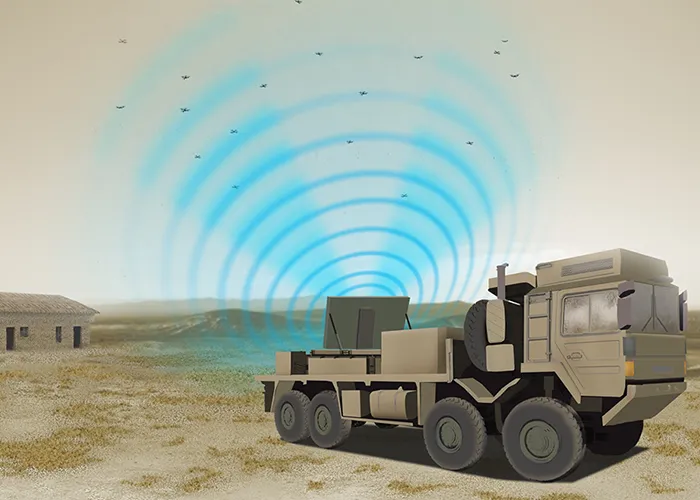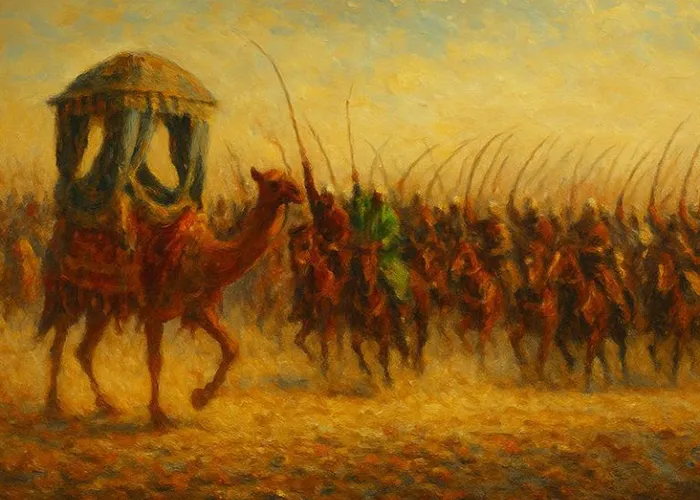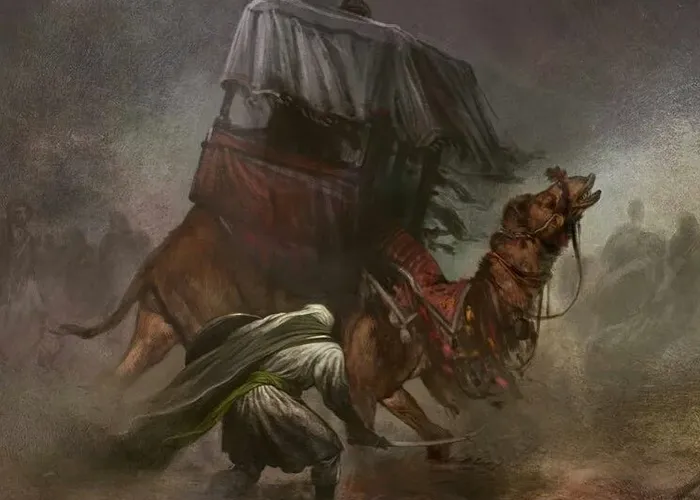Topic of the Week – Volume02 Issue45
An Islamic Reflection on “Science for Peace and Development”
Seyed Hashem Moosavi
Introduction
World Science Day for Peace and Development invites humanity to reflect on the deeper purpose of knowledge. In a world transformed by rapid scientific and technological progress, it is vital to ask whether science should remain a means for material gain or become a force for peace and sustainability. From the Islamic perspective, which aspires to universal guidance and human elevation, knowledge holds a sacred and purposeful role. Rooted in the Qur’an and the teachings of the Prophet Muhammad (peace be upon him and his family), Islam envisions science as a path guided by faith and ethics — one that steers humanity away from conflict and destruction and toward the flourishing of life, justice, and harmony.
Part One: A Universal Call to Learning and Reflection on Existence
The Qur’an places great importance on knowledge, urging humanity to learn, teach, and reflect deeply. Through repeated calls to observe and ponder the signs in the world around us (āyāt āfāqī) and within ourselves (āyāt anfusī), it lays the foundation for a broad scientific and intellectual awakening grounded in faith and contemplation.
Verses such as:
« قُلِ انظُرُوا مَاذَا فِي السَّمَاوَاتِ وَالْأَرْضِ؛
“Say, ‘Look carefully at what is in the heavens and the earth.” (Qur’an 10:101)
«أَفَلَا يَنظُرُونَ إِلَى الْإِبِلِ كَيْفَ خُلِقَتْ؛
Do they not contemplate the camel, how it was created?
«وَإِلَى السَّمَاءِ كَيْفَ رُفِعَتْ؛
And the sky, how it was raised?
«وَإِلَى الْجِبَالِ كَيْفَ نُصِبَتْ؛
And the mountains, how they were set up?
« وَإِلَى الْأَرْضِ كَيْفَ سُطِحَتْ؛
And the earth, how it was spread out?” (Qur’an 88:17–20)
The narrations (hadiths) of the Infallible Imams (peace be upon them) also emphasize the importance of acquiring knowledge — even if it requires traveling to the farthest corners of the world.
These broad and universal calls to understanding are not merely invitations to inward faith but serve as a model for establishing the experimental and natural sciences upon the foundation of tawḥīd (Divine Unity). This perspective liberates knowledge from isolation and connects it to the pursuit of understanding the wisdom of the Creator — and consequently, the recognition of the most perfect order of existence. The first fruit of such understanding is a sense of responsibility toward this system and all beings within it.
- Guiding Science Toward Sustainable Development to Defensive Deterrence
Islamic teachings, while taking into account both individual and social interests, give priority to learning certain branches of knowledge that promote sustainable and less harmful development, and discourage the pursuit of others. Based on this principle, it can be said that Islam follows two major approaches in guiding the course of scientific endeavour:
Examples include:
1. Promoting Beneficial and Development-Oriented Sciences
Islamic teachings emphasize the pursuit of those branches of knowledge that, while fostering development, inflict the least harm upon human beings and the environment. Sciences such as agriculture and animal husbandry (for sustainable food production), as well as industrial fields like road construction and commerce (for sound infrastructure and a healthy economy), are examples of beneficial sciences that are praised and commended in Islamic sources.
Yazīd ibn Hārūn narrates from Imam al-Ṣādiq (peace be upon him) that he said:
“Farmers are the treasures of a community. They sow what is pure and lawful. God Almighty causes it to grow from the earth, brings it forth, and nurtures it. On the Day of Resurrection, they will have the best position among all people. They will be the closest to God, and their names will be mentioned with blessing.”
(Wasā’il al-Shī‘ah, vol. 19, p. 34, ḥadīth 7)
In another narration, the Noble Prophet of Islam (peace and blessings be upon him and his family) defines the path to the earth’s blessings as lying in agriculture and animal husbandry, saying, “When God created the means of livelihood for people, He placed blessings in cultivation and in sheep-rearing.”
(Kanz al-‘Ummāl, vol. 4, p. 32)
Imam al-Ṣādiq (peace be upon him) also attached great importance to trade, considering the abandonment of it a cause of diminished intellect. He said, “Do not give up buying and selling, for abandoning it destroys the intellect.”
From this narration and many others like it, we understand that trade is not merely a means of accumulating wealth, but rather a way for individuals and society to fulfil their needs. In the light of such activity, the collective intellect of the people flourishes, while idle thoughts and tendencies toward comfort and complacency are driven away.
This perspective aligns closely with the modern concept of sustainable development, in which the well-being of future generations and the preservation of environmental health are considered.
2. The Primacy of Defence over Aggression and War
Islam places the greatest emphasis on deterrence and protection before conflict, guiding knowledge toward strengthening security and preventing hostility. One of the Qur’an’s precise teachings regarding the application of knowledge and its priority-based perspective can be seen in its encouragement of developing defensive tools.
In the story of Prophet Dāwūd (David) — peace be upon him — the All-Wise God teaches him the craft of making armour. The Holy Qur’an says:
«وَعَلَّمْنَاهُ صَنْعَةَ لَبُوسٍ لَّكُمْ لِتُحْصِنَكُم مِّن بَأْسِكُمْ؛
“And We taught him the making of coats of armour for you, to protect you from your (own) violence in battle.” (Surah al-Anbiyā’, verse 80)
This verse highlights that divine guidance directs human skill and scientific endeavour toward the preservation of life and the prevention of harm — making defence, rather than aggression, the foundation of power in Islam.
The subtle point here is that, from the Islamic perspective, defence takes precedence over war, and even in the military domain, knowledge must serve the purposes of protection, preservation of human life, and deterrence from the harms of conflict, rather than inciting war or destruction.
This approach directs science toward the development of deterrent technologies and methods that reduce casualties, while fostering a peace-oriented mindset at the very core of knowledge and technological advancement.
Part Three: Avoiding Destructive and Divisive Sciences
Islam, just as it encourages the pursuit of beneficial knowledge, strongly warns against learning and applying sciences that serve to create discord, sedition, or the destruction of the environment.
The Holy Qur’an cites sorcery as an example of this misleading and corrupting form of knowledge.
وَمَا كَفَرَ سُلَيْمَانُ وَلَٰكِنَّ الشَّيَاطِينَ كَفَرُوا يُعَلِّمُونَ النَّاسَ السِّحْرَ …. فَيَتَعَلَّمُونَ مِنْهُمَا مَا يُفَرِّقُونَ بِهِ بَيْنَ الْمَرْءِ وَزَوْجِهِ … وَيَتَعَلَّمُونَ مَا يَضُرُّهُمْ وَلَا يَنفَعُهُمْ
“And Solomon did not disbelieve, but the devils disbelieved, teaching people magic; ….. They taught people magic, through which they caused separation between a man and his wife… yet they taught nothing but that which harmed them and brought no benefit.” (Surah al-Baqarah, 2:102)
The verse clearly indicates that any knowledge whose predominant outcome is the creation of discord and corruption on earth, thereby endangering peace and harmony among individuals and society, is rejected and condemned from the Islamic perspective.
Part Four: Knowledge within the Bounds of Ethics — A Guarantee for Lasting Peace
One of the most prominent aspects of Islam’s perspective on knowledge is its constant emphasis on ethics and the inseparable link between the two. Knowledge without ethics is like a sharp sword in the hands of an irrational person — it can easily become a tool for oppression and the destruction of humanity. Islamic teachings clearly stress that the instruction of knowledge must always be accompanied by the teaching of ethical principles, so that the tools and technologies produced through knowledge do not, due to a detachment from moral foundations, serve oppression or human destruction.
When knowledge is intertwined with spirituality and ethics, it serves not the narrow interests of a particular group, but the shared understanding of humanity and human values. In this way, the individual feels responsible both toward the Creator and toward fellow beings. If a person realizes that they are not the owner of this world, but merely one of billions of beneficiaries, accountable to the Creator for every action, they will approach the use of their knowledge with far greater caution. For instance, if a scholar observes that the outcome of their economic theories primarily impoverishes the poor, ethically they are obliged to correct it, ensuring that proper development and justice are not disrupted in the world.
Top of Form
Concrete and striking examples of the consequences of divorcing knowledge from ethics and spirituality are evident today in the production of weapons of mass destruction, chemical, microbial, and environmental pollution, and the economic exploitation of nations.
One prominent aspect of ethics in science is special attention to environmental preservation. Islam strongly discourages any knowledge or practice that results in the destruction of the environment and prescribes both worldly and spiritual consequences for such actions.
A notable example is the command of the Noble Prophet of Islam (peace and blessings be upon him and his family) during the Conquest of Mecca, which clearly reflects Islam’s concern for the protection of human and animal life, as well as environmental health. The Prophet issued an official order instructing that no tree should be cut, no farm burned, no animal killed, and no well poisoned.
(Bihār al-Anwār, vol. 19, p. 177; Wasā’il al-Shī‘ah, vol. 11, p. 43)
This directive, issued over 1,400 years ago, exemplifies a controlled approach to technology and wartime knowledge and serves as an early charter emphasizing that development and progress must never come at the expense of nature and the environment.
Part Five: The Science of Fiqh and Its Legal Structure in the Service of Peace and Social Justice
Fiqh, as the science of deriving divine rulings, is, at its core, a fully development-oriented and peace-promoting discipline. Despite its seemingly strict appearance in certain rulings, it is essentially a powerful tool for deterring oppression and crime.
Commercial, family, and judicial rulings — such as qisās (retribution), ḥudūd (fixed punishments), diyāt (blood money), and ta‘zīr (discretionary punishments) — when properly understood and implemented, have the highest deterrent effect against crime and help establish a society rooted in security, justice, and lasting peace.
As Imam Ali (peace be upon him) said: العدلُ أساسٌ بِهِ قِوَامُ العالَم — “Justice is the foundation upon which the stability of the world rests.”
The internal peace of a society, preceding its external peace, depends on justice. Justice is fully evident within the legal structure of علم فقه (the science of Fiqh), and Fiqh, by regulating human relationships with God, the self, others, and nature, provides a comprehensive framework for a balanced and peaceful life.
Bottom of Form
Conclusion
From the Islamic perspective, knowledge is not a double-edged sword, but a sacred tool that, when situated within the framework of spirituality, ethics, and Fiqh, naturally guides toward peace and sustainable development. Islam’s view of knowledge is purpose-driven and responsibility-oriented. The Qur’an and the Islamic Sunnah regard knowledge as a divine gift, whose ultimate aim is not the pursuit of power or wealth, but the recognition of God, the cultivation of the earth based on justice, and the establishment of peace and tranquillity for all human beings and even other creatures.
This perspective transforms the scholar from a mere specialist into a “responsible servant” before God and His creation. They understand that for every scientific innovation, they are accountable for its impact on global peace, environmental balance, and social justice.
Realizing this ideal requires that in all fields of knowledge—from physics and chemistry to economics, arts, and literature—the ethical and value-based foundations of Islam serve as a guiding light and compass. Only then can knowledge truly serve peace and sustainable development for all of humanity.
editor's pick
news via inbox
Subscribe to the newsletter.




